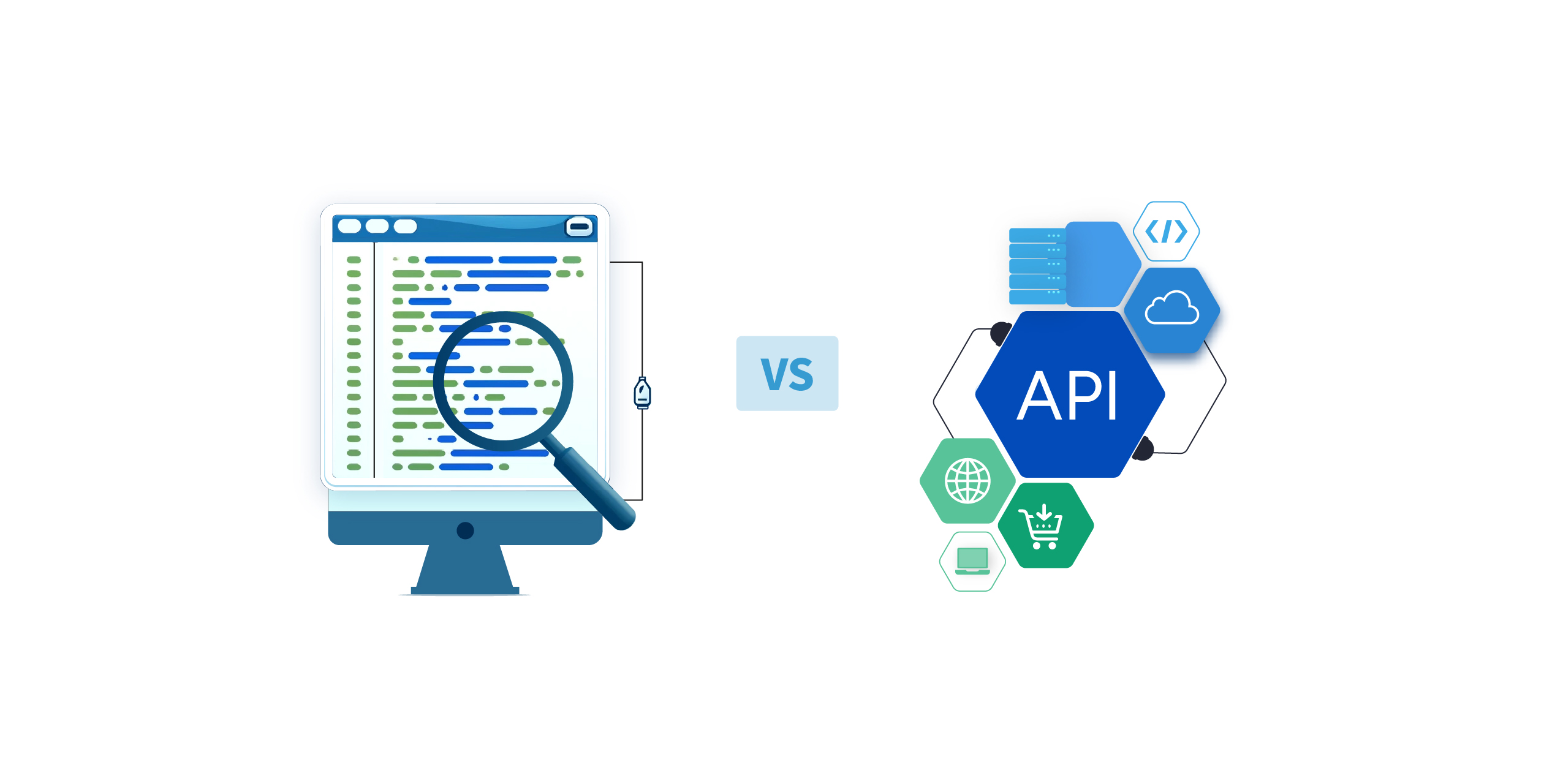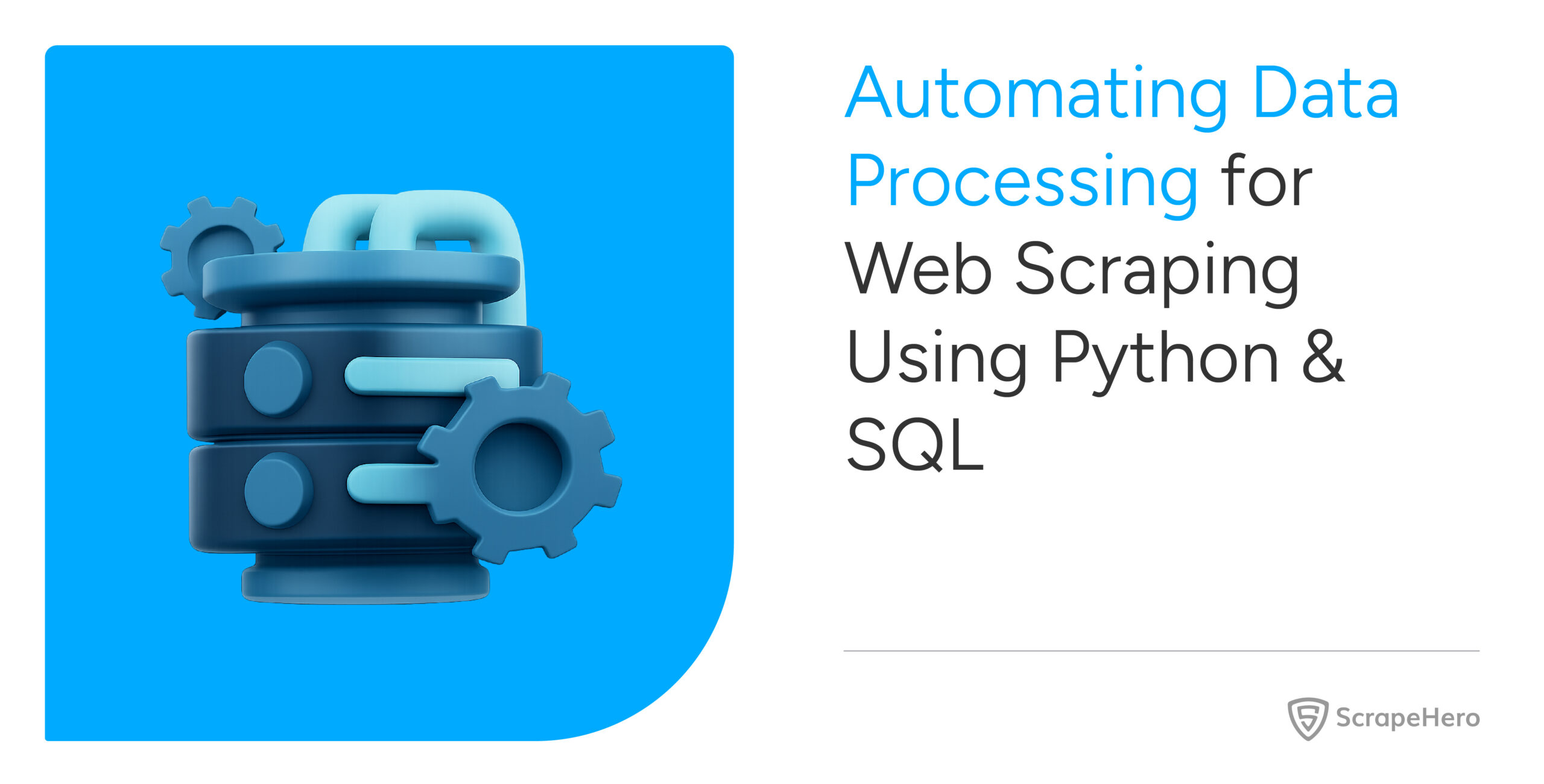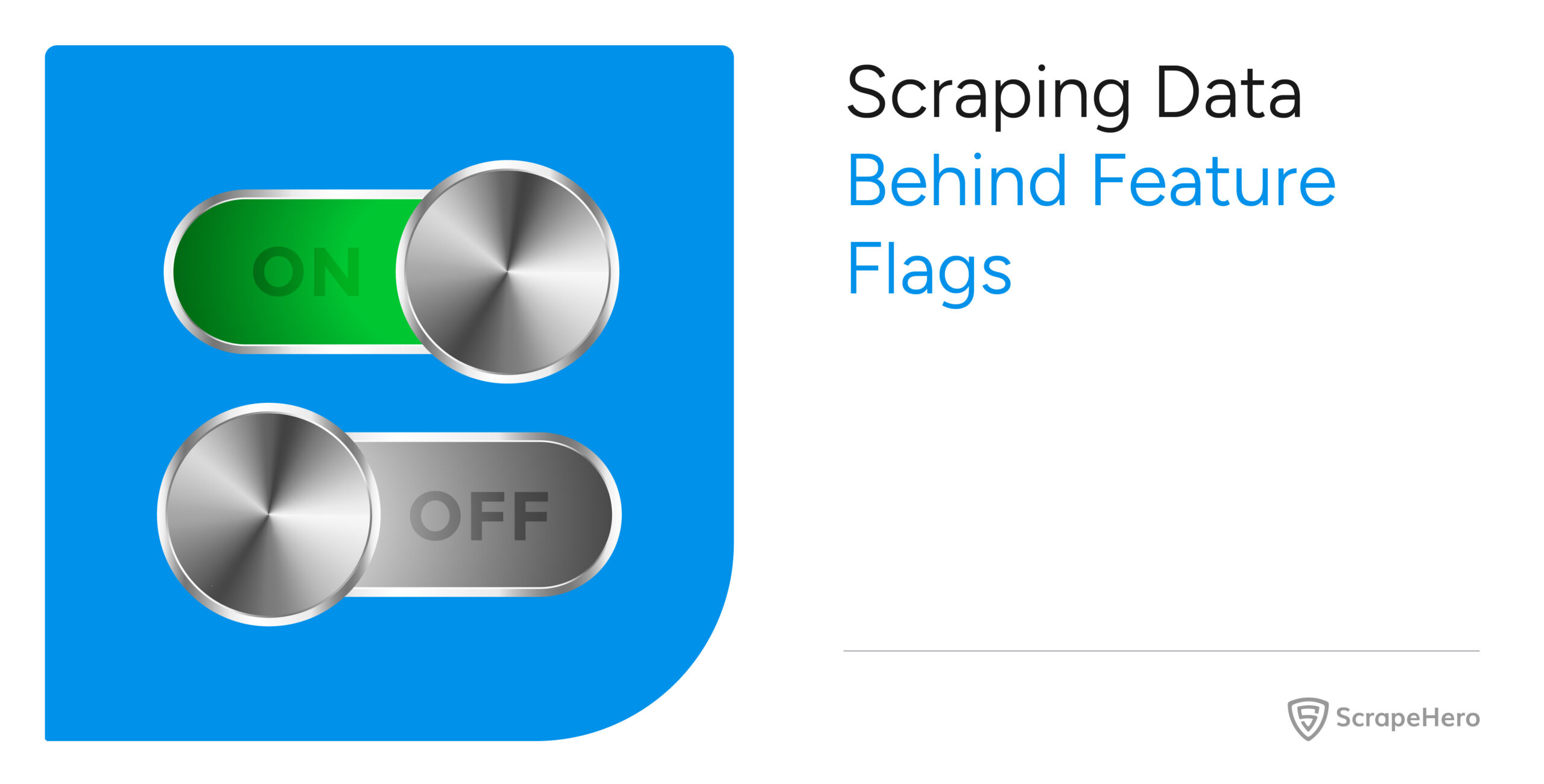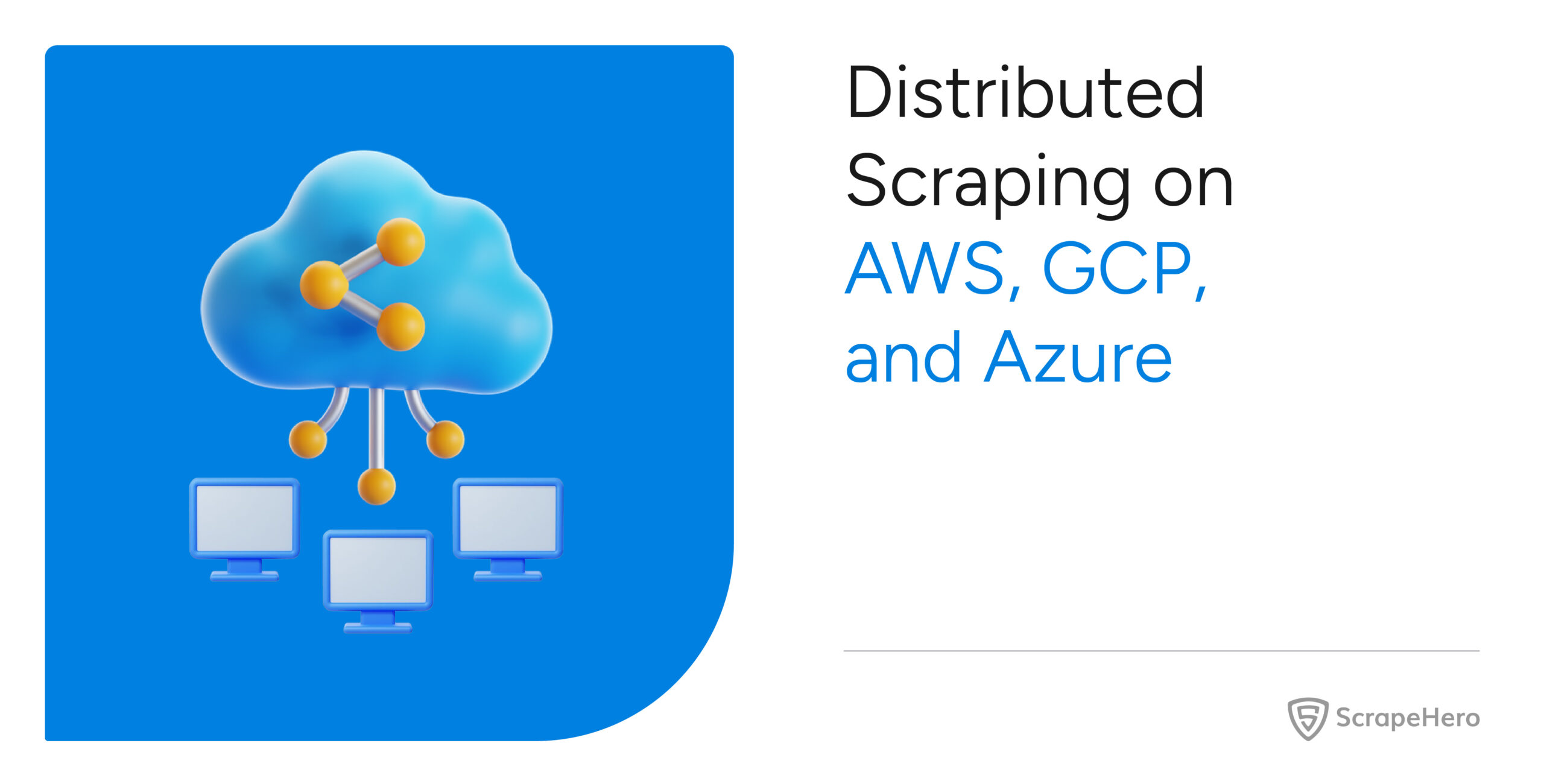You can use both web scraping and an API for data extraction. However, they differ in their data extraction techniques. In this article, you will learn the difference between web scraping vs. API for data extraction. You can then decide whether to scrape data or use an API.
What is Web Scraping?
Web scraping refers to gathering data from public web pages using a computer program. It is similar to copying the contents of web pages and pasting them into a document. However, web scraping automates it.
What are APIs?
APIs, or application programming interfaces, allow you to communicate with a server using a computer program.
Servers must expose their endpoints for APIs to function. An endpoint is the location (usually a URL) of a specific task that the API can perform. Exposing an endpoint means allowing others to interact with it.
During the interaction, you can send information, retrieve data, or manage resources, depending on the API’s purpose.
Read on to compare data extraction API vs. web scraping.
Web Scraping Vs. API: Differences
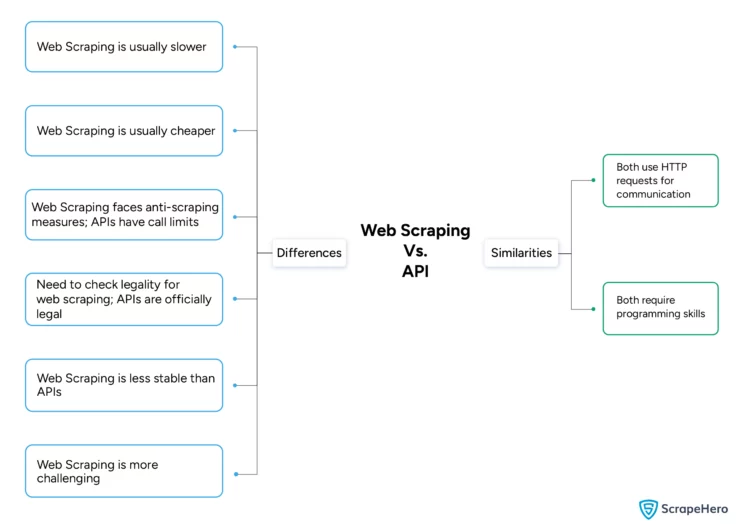
Speed
Web scraping is slower than APIs as you only extract information from their public website, while you can directly connect to their server using an API.
Moreover, web scraping may require you to render JavaScript before getting a valid response, reducing the speed. Even after getting a response with the HTML content you need, you must parse it, further slowing it down.
APIs directly get information based on the requests. The payload of the requests specifies the information you need.
Cost
Web scraping is usually cheaper than APIs unless APIs are public. You can usually scrape data from any website with only computational power and the internet. However, sometimes, you may need to use proxies to bypass anti-scraping measures, which can be expensive.
Though public APIs are free, you may need to pay for using private APIs. They usually have tiers with different costs depending on allowed API calls; making one HTTP request to the API is one API call.
Restrictions
Servers can restrict web scraping through anti-scraping measures, including blocking specific requests. In rare situations, the servers may also block your IP address. However, you can bypass these anti-scraping measures.
Servers restrict APIs by limiting API calls. As mentioned above, the private APIs usually have tiers. Each tier has a different cost; the more expensive the tier is, the more API calls you can make.
Legality
Web scraping may be illegal if you are not careful about the data you are scraping. Web scraping public data is generally legal, but scraping private data behind a login or paywall is not.
On the other hand, APIs are official. Therefore, you don’t need to worry about legality as long as you don’t try to bypass their restrictions.
Stability
Web scraping is less stable than using APIs, as you don’t know when the website’s structure will change. You need to update the code when that happens. Servers can also increase the anti-scraping measures, requiring you to figure out new ways to bypass them.
In the case of APIs, websites inform you long before they implement the changes. They also temporarily allow you to access the old APIs even after the implementation. This way, you get time to make adjustments to your code.
Difficulty
Web scraping is more challenging than using an API to get data. A program for gathering data using an API is almost the same; you only have to change access tokens and endpoints. Moreover, there will be documentation describing how to use the API.
In the case of web scraping, the logic for locating data depends on the website’s structure, so it is necessary to figure out the logic for each website. You may also need to know how to use anti-scraping measures, including headers and proxy rotation.
Web Scraping Vs. API: Similarities
- Both web scraping and APIs can use HTTP requests to get data.
- You need programming skills to use either APIs or web scraping techniques.
Web Scraping APIs: Best of Both Worlds
Web scraping APIs are APIs for interacting with a web scraper. Therefore, these APIs combine the benefits of both APIs and web scraping. It is convenient as an API and versatile as web scraping.
If you want such an API, ScrapeHero can build a custom Web Scraping API for you. Just tell us the requirements, and we will create the API. You can then make API calls and get the scraped data as a response.
You can also try out our ready-made web scraping APIs on ScrapeHero Cloud. These are built for a specific purpose. For example, ScrapeHero Walmart API provides product details from Walmart in real-time.
Conclusion
You can gather data using web scraping and APIs, but the better method varies with the situation. While web scraping is possible for any website, APIs are only applicable to websites with exposed endpoints.
However, web scraping is more challenging than using APIs to extract data. That is because you must figure out the logic for scraping data while you can learn how to use the API from its documentation. Moreover, websites tend to restrict web scraping, requiring you to use techniques to bypass anti-scraping measures.
If you want to get the benefits of both APIs and web scraping, you can use the APIs on ScrapeHero Cloud. Try ScrapeHero Services if you want to avoid coding entirely.
ScrapeHero is a full-service web scraping service provider. We can build enterprise-grade web scrapers for you customized to your needs. Our services range from large-scale web scraping and crawling to custom robotic process automation.
We can help with your data or automation needs
Turn the Internet into meaningful, structured and usable data

